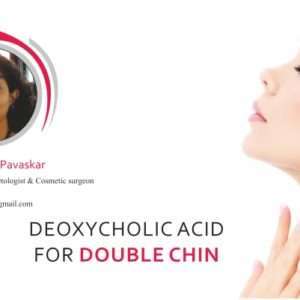Over last two decades, the cosmeceutical market has grown by leaps and bound. Not only is the number of cosmeceutical manufacturers and products on rise but the amount of money spent on skin care has also landed upward significantly.
As the science and industry of cosmeceutical grows, dermatologists now find themselves enjoying more opportunities to expand their treatment horizon and it also adds to the responsibility of being equally reasonable and justifiable while prescribing.
But aside from how they affect our business, cosmeceuticals are arguably changing the treatment landscape of our field. Skin care agents are more targeted and tolerable than before.
The term “cosmeceuticals” refers to the agents that facilitate skin care and while skin care is important for overall skin health, it is not a determining factor in managing any one dermatological condition.
Perhaps the most prominent example of this change is the case of the various topical forms of vitamin A, which has been used for more than 40 years in dermatology. It is the primary ingredient in topical tretinoin formulation for acne and photo – damaged skin for several decades. However, in recent years, we have seen a movement towards non-prescription retinols. Now, retional is a main ingredient in a variety of OTC products and has been combined with sunblocks and other bioactive ingredients like antioxidants to boost its clinical efficiency.
Many reputed pharmaceutical companies are coming up with products rich is nutrients and other such ingredients that go beyond basic skin care. They encompass ingredients like ceramides that mimic the skin barrier and are useful as repair agents. As such, these agents can potentially play a supplementary role in sun protection, and inflammatory conditions such as acne, eczema, and even psoriasis. These agents are not likely to displace topical steroid prescription agents but rather play a complementary role in treatment – nevertheless these products are actively blurring the lines between what was once a very clear divide between prescription agents and OTC products.
With all the advances in cosmeceutical technology, however they have a long way to go before being considered truly viable addition to a regimen.
The right cosmeceutical can be a good addition to a therapeutic or daily skin care regimen, but one of the most important aspects of integrating cosmeceuticals is keeping it simple. It’s our job to simplify regimen as much as possible. Given the lack of regulation and FDA guidelines for cosmeceuticals, manufacturer can essentially say anything about their products.
Many product lines have appealing packaging and a lot of media hype but fall short on actual benefits. It’s good to inform patient about the cosmeceutical market and how it differs from drugs. It makes them more discerning consumers. And also illustrates to the patient why your guidance is particularly valuable.
As skin care experts, we should be on the forefront of skin care revolution guiding patients on the selection and use of cosmeceutical agents may necessitate spending on extra few minutes with them, but it represents an excellent avenue to meaningfully influence their health and making a mark as a dermatology expert.






